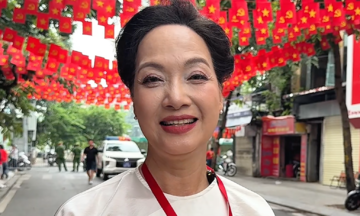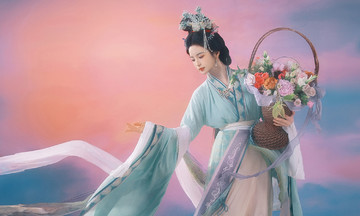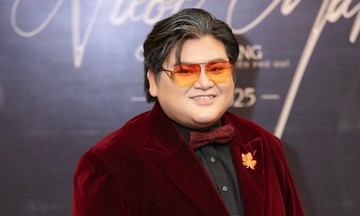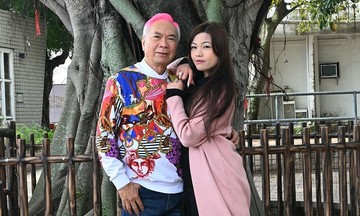Art critic Pham Xuan Nguyen, a close friend of Le Thiet Cuong, said he died at 6:55 pm at his home in Ly Quoc Su, Hanoi. He had been suffering from a rare form of cancer for several years. A week before his passing, his condition worsened, and he was hospitalized in critical condition.
In June, he released a book of art criticism, "Conversations with Painting," comprising 70 articles on artists and works of fine art, sculpture, and ceramics, previously published in newspapers and magazines since 2000. In April, he curated an exhibition of more than 200 ceramic pieces related to writer Nguyen Huy Thiep. Last August, he held a multimedia exhibition themed around the word "Duyen" (Destiny).
Born in 1962, Le Thiet Cuong was the son of screenwriter and poet Le Nguyen and cinematographer Do Phuong Thao. He studied at the Hanoi University of Theater and Cinema from 1985 to 1990. For over 30 years, he pursued a minimalist style in painting, practicing and experimenting through various branches: shades, color harmonies, shapes, and lines.
Regarding his creative philosophy, the artist once said, "I can't do anything but minimalism, whether it's painting, sculpting, making ceramics, or graphic design. Minimalism is me, I am minimalism. Minimalism is my 'core personality,' my DNA, my fingerprint, my identity, my ID."
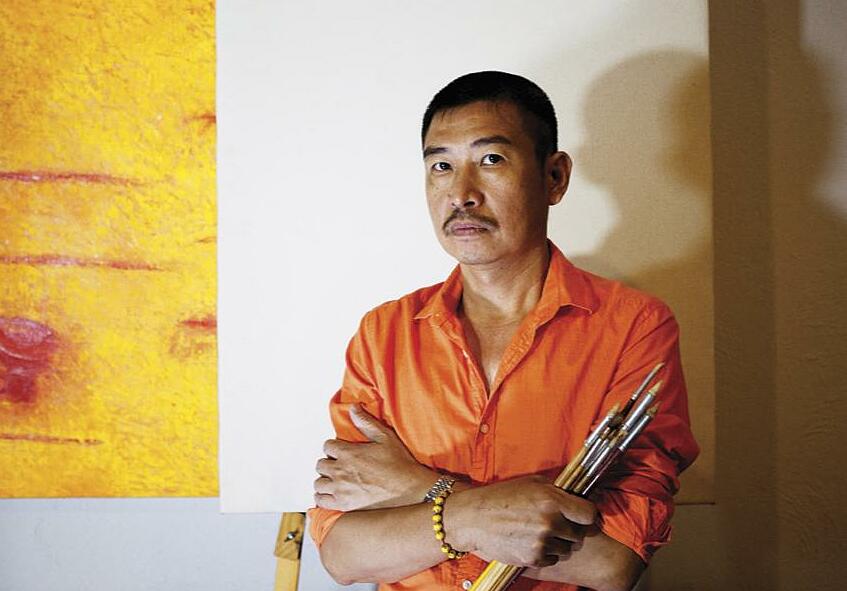 |
Artist Le Thiet Cuong. Photo: Art Viet |
Artist Le Thiet Cuong. Photo: Art Viet
The artist was passionate about reading, especially books about Buddhism. Buddhist thought was closely related to his minimalist school. "Minimalism is Zen, it is tranquility, it is wordless, economical in form, color, and line. It is speaking through silence, 'thunderous silence.' Buddhists believe that practicing Buddhism is returning to oneself, finding one's 'true face,' seeing one's nature as Buddha, 'turning back is the shore.' Similarly, in art, making art is making oneself, finding oneself, returning to one's inner self," he wrote in "Conversations with Painting."
He also had a knack for writing criticism, with his debut book "Seeing" (2017). In his latest book, "Conversations with Painting," he used simple language and a straightforward tone, objectively pointing out the impressive features of the artists and their works. "When writing about any artist, I only talk about the precious dust they contribute to painting, not the outer shell. As few words as possible," Le Thiet Cuong said.
After many years in the art world, he embraced the concept of the British historian W. Dilthey: "The ultimate goal of the process of interpreting a text is to understand an author more profoundly than they understand themselves." As a critic, Le Thiet Cuong "relied solely on the painting itself to analyze and make judgments, absolutely not listening to the artist talk about their work." "Making art, painting, writing is subjective. Without subjectivity, there is no art," he said.
The artist was close to many figures in the literary world, deeply understanding their thoughts and styles. During his lifetime, he was a close friend of writer Nguyen Huy Thiep. In his collection of essays "House and People," released last year, he offered insightful perspectives on many artists such as poet Nguyen Quang Thieu, musician Phu Quang, and director Dao Trong Khanh.
Writer Do Bich Thuy described Le Thiet Cuong as a person with extensive knowledge of culture, who lived meticulously and always observed everything in great detail. "Besides being a painter, within him was a writer, a researcher, a scientist with unique thinking. For him, everything had its reason; nothing was natural," Do Bich Thuy said.
In addition to fine arts, he achieved recognition in many fields such as photography, sculpture, architecture, and design. He participated in numerous exhibitions at home and abroad, curated many events, and had his works included in the collection of the National Museum of Singapore.
Ha Thu



